Workshop 2: Captivity – Captivation – Observation
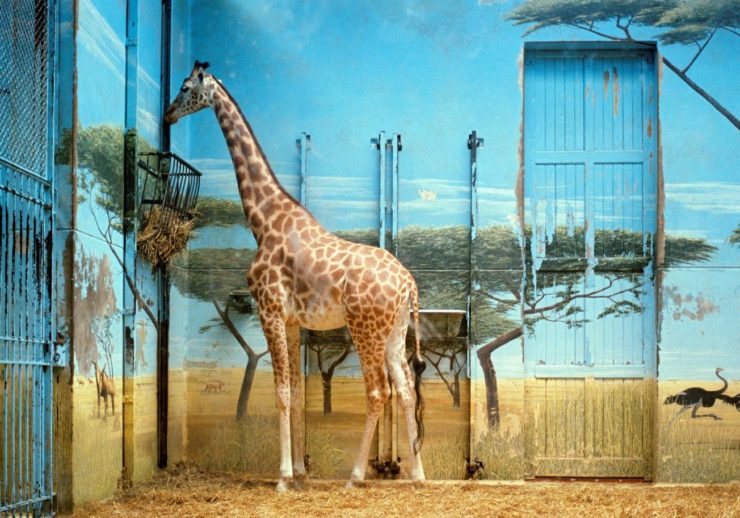 In his famous essay “Why Look at Animals?”, John Berger writes: “All sites of enforced marginalization—ghettos, shanty towns, prisons, madhouses, concentration camps—have something in common with zoos.” Zoos are not only sites of entertainment and spectacle but also sites of incarceration and violence, which moreover are fundamentally bound up with other forms of oppression. A dominant theme in representations of the zoo has always been the cage separating the spectators from the animals. In this workshop we focus on how authors, filmmakers, and visitors imagine the lived experience of animals in the zoo, and how it intersects with issues of race, colonial exploitation, the objectifying human gaze. Running parallel to the image of the cage since the nineteenth century is the popular anxiety about wild animals escaping from their enclosures. Such “zoo-break narratives”, however, frequently serve only to reinforce a nature / culture binary, by imagining the restoration of a natural order. Moreover, an implicit assumption underlying critiques of the zoo in the style of John Berger is that the animals in their cages are but pale imitations of their full-blooded cousins in the wild. In an age of pervasive habitat loss through development and poaching, however, it is increasingly the case that there simply is no “natural” habitat to which these animals might return. How does this circumstance affect the way zoos are represented, and how they rep-resent themselves, today?
In his famous essay “Why Look at Animals?”, John Berger writes: “All sites of enforced marginalization—ghettos, shanty towns, prisons, madhouses, concentration camps—have something in common with zoos.” Zoos are not only sites of entertainment and spectacle but also sites of incarceration and violence, which moreover are fundamentally bound up with other forms of oppression. A dominant theme in representations of the zoo has always been the cage separating the spectators from the animals. In this workshop we focus on how authors, filmmakers, and visitors imagine the lived experience of animals in the zoo, and how it intersects with issues of race, colonial exploitation, the objectifying human gaze. Running parallel to the image of the cage since the nineteenth century is the popular anxiety about wild animals escaping from their enclosures. Such “zoo-break narratives”, however, frequently serve only to reinforce a nature / culture binary, by imagining the restoration of a natural order. Moreover, an implicit assumption underlying critiques of the zoo in the style of John Berger is that the animals in their cages are but pale imitations of their full-blooded cousins in the wild. In an age of pervasive habitat loss through development and poaching, however, it is increasingly the case that there simply is no “natural” habitat to which these animals might return. How does this circumstance affect the way zoos are represented, and how they rep-resent themselves, today?
Workshop Programme
Thursday 7 November – Drift 25, room 203
13.00–13.30: Welcome & Introductions
13.30–15.00 SESSION 1: Captivity, Captivation, Observation
Kári Driscoll (Utrecht University)
15.00–15.30 Coffee
15.30–17.00 Session 2: What Captivity Means
Marianna Szczygielska (Max Planck Institute for the History of Science, Berlin)
17.15–19.00 KEYNOTE 1: “Challenging Disposability”
Lori Gruen (Wesleyan University)
19.30 Dinner
Friday 8 November – Drift 25, room 203
9.30–10.00 Coffee
10.00–12.30 SESSION 3: Interspecies Encounters I
Yulia Kisora & Clemens Driessen (Wageningen University) | Mirko Cerrone (University of Tartu)
12.30–14.00 Lunch
14.00–16.30 SESSION 4: Interspecies Encounters II
Harriet Smith (Cardiff University) | Thera Naiman (Johns Hopkins University)
16.30–17.00 Coffee
17.15–19.00 KEYNOTE 2: “ZOOOF, or: How to Design a Voluntary Zoo?”
Thijs de Zeeuw (Nature Optimist, Amsterdam)
Location: Janskerkhof 2–3, room 013
19.30 Dinner
Saturday 9 November – Drift 21, room 003
9.30–10.00 Coffee
10.00–12.30 SESSION 5: The Zoo on/as Stage
Anne Hölck (Berlin) | Esther Köhring (Goethe-Universität Frankfurt am Main)
12.30–13.30 Lunch
13.30–15.00 SESSION 6: The Zoo and You
Andrew Westoll (University of Toronto, Scarborough)
15.15–16.00 Conclusion & Future Plans
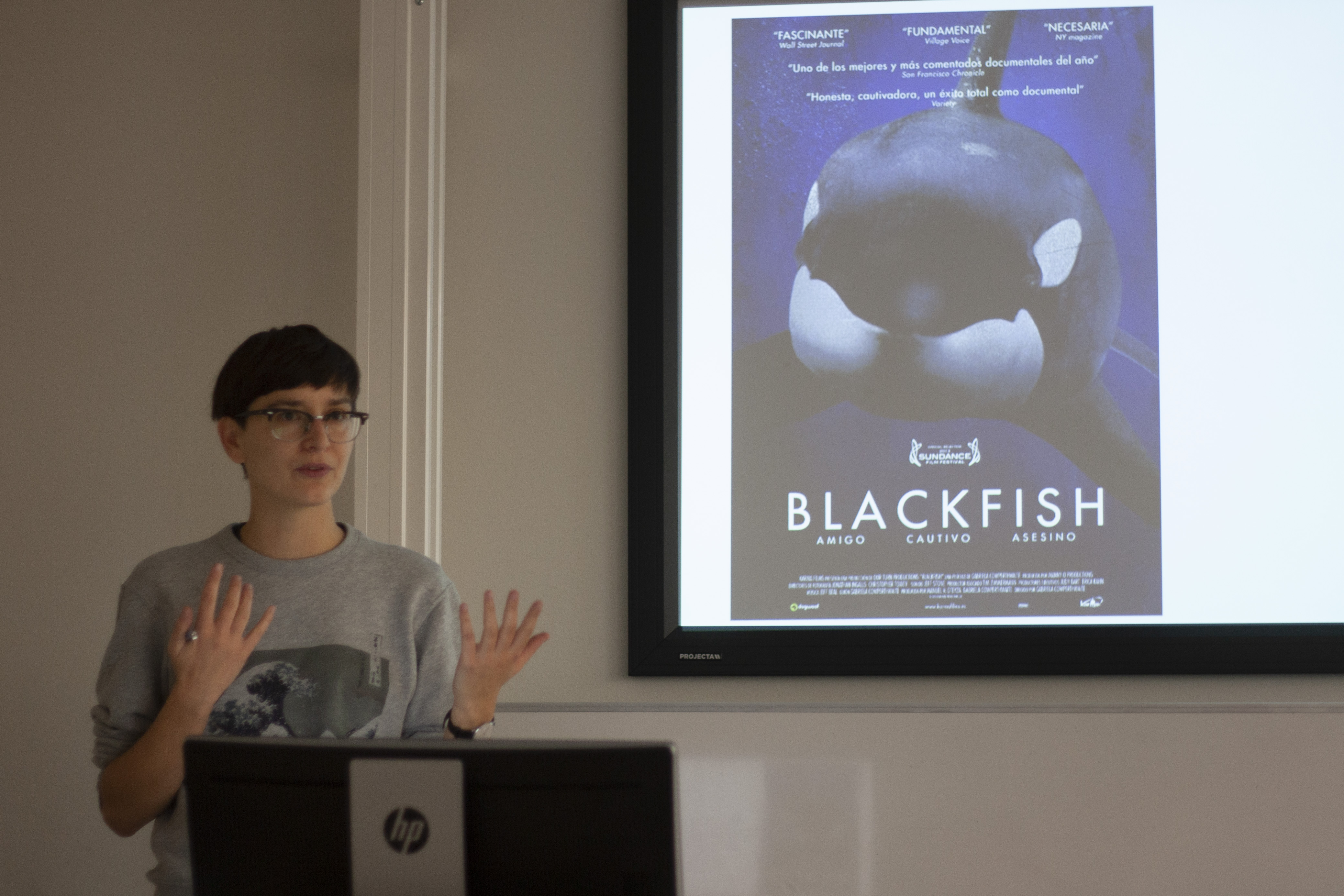
Marianna Szczygielska.
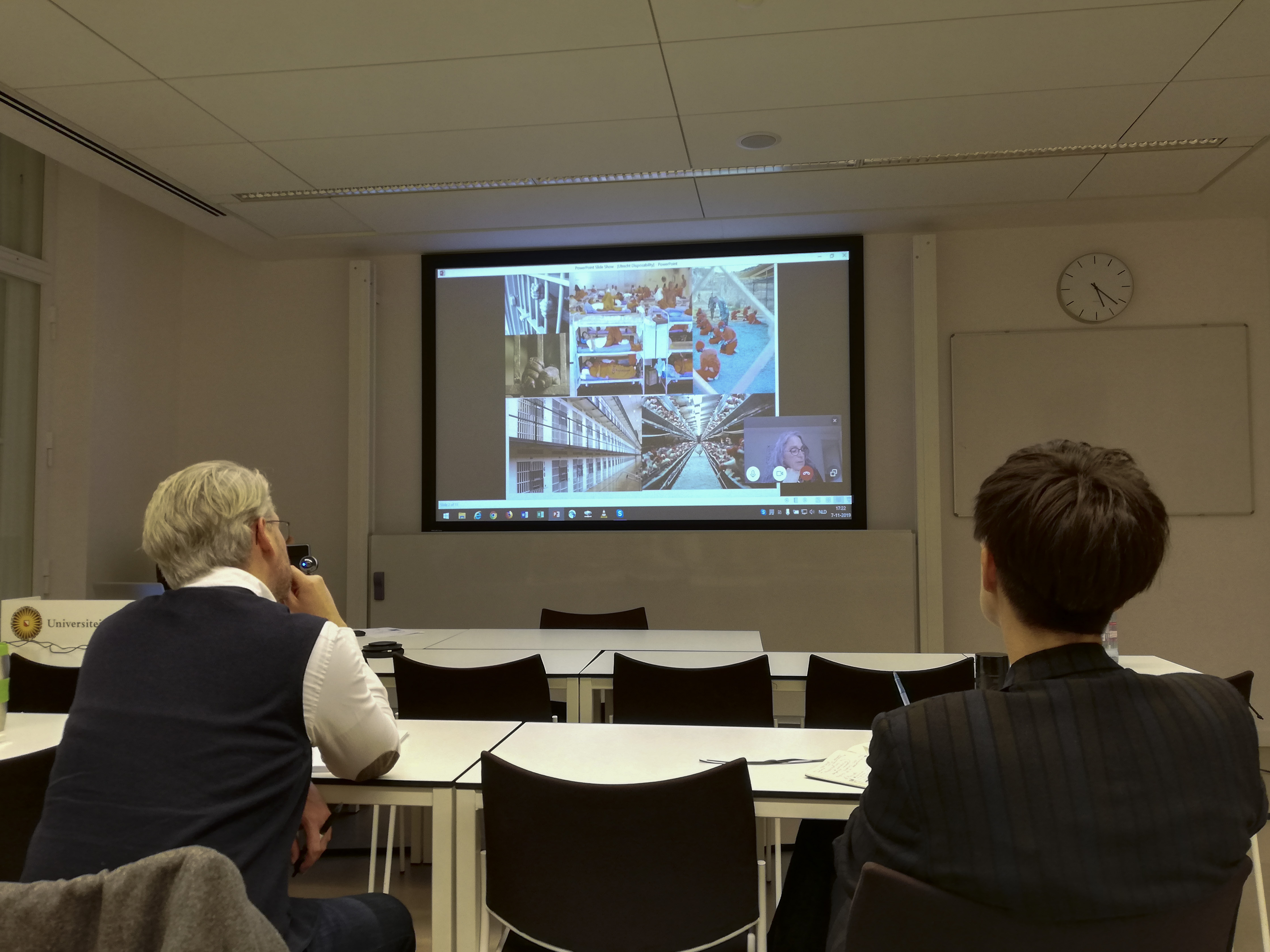
Keynote by Lori Gruen via Skype.
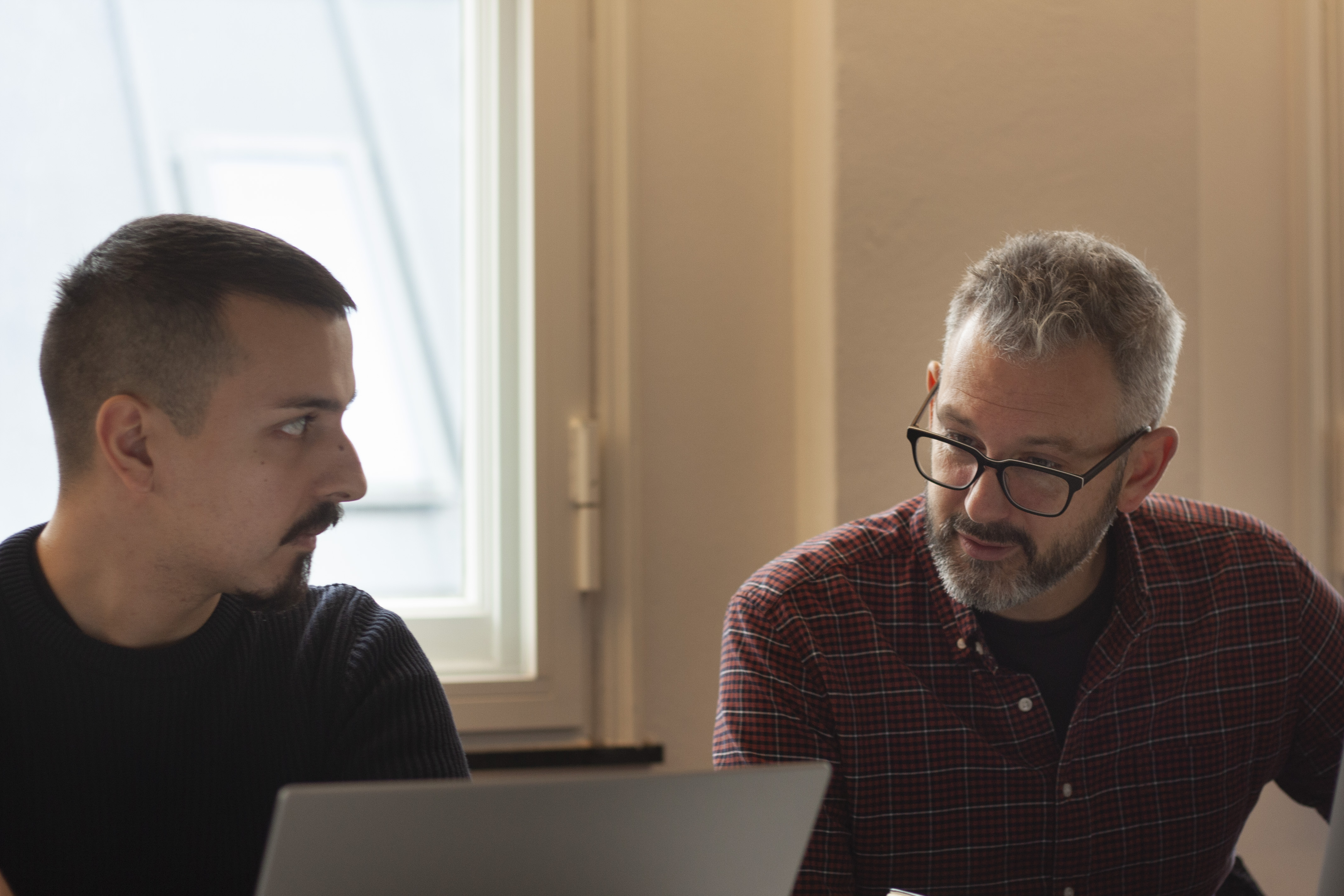
Mirko Cerrone and Andrew Westoll.
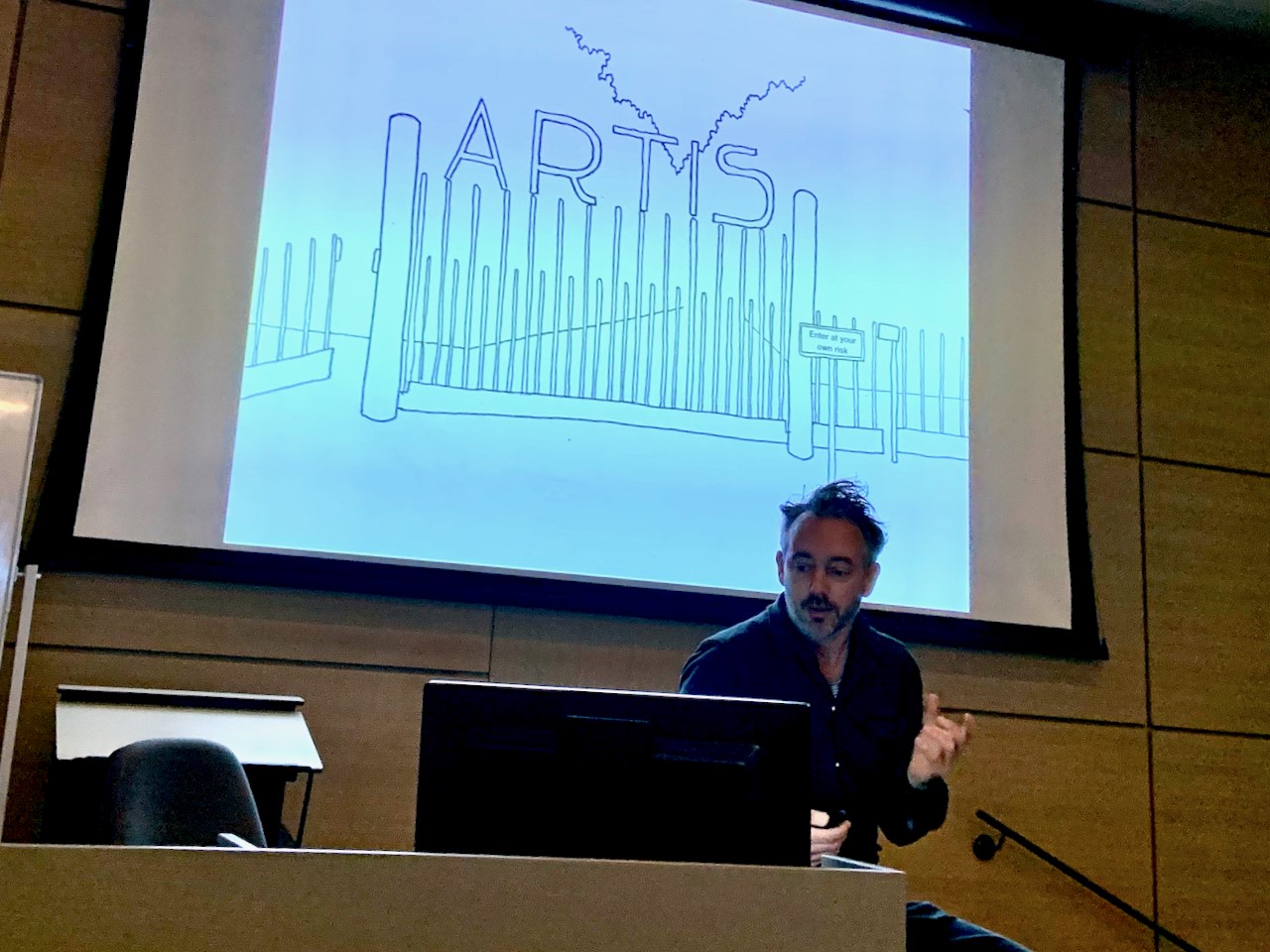
Keynote by Thijs de Zeeuw.

